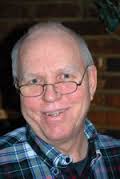 History books say the Civil War effectively ended on April 9, 1865, when Robert E. Lee surrendered to Ulysses S. Grant at Appomattox Court House, Va.
History books say the Civil War effectively ended on April 9, 1865, when Robert E. Lee surrendered to Ulysses S. Grant at Appomattox Court House, Va.
“We’re fighting the last battle of the Civil War,” Rob Reiner said the other night on MSNBC’s “Hardball with Chris Matthews.”
The director, producer, “All in the Family” immortal and liberal political activist was speaking metaphorically of Donald Trump’s election.
Trump detractors, and at least one defender, have compared the president-elect to George Wallace, Alabama’s segregationist governor who carried five former Confederate states when he ran for president in 1968.
Trump, too, sounds like Democrat Franklin Pierce, who was elected president in 1852. Anti-slavery Republicans slammed Pierce, a New Hampshire Democrat, as a craven “Doughface,” a Northerner who happily carried water for the pro-slavery, white supremacist South.
Anyway, more than a few Confederate battle flags fluttered above Trump yard signs and flapped at Trump rallies in Dixie and in border states like Kentucky, where I was born, reared and still live.
Trump pandered to bigotry harder than any presidential hopeful since Wallace, who won a quintet of Kentucky counties 48 years ago: Bullitt, Christian, Fulton, Hickman and Todd. They went for Trump, as did all but two of the Bluegrass State’s 120 counties–Jefferson (Louisville) and Fayette (Lexington).
Trump “is a classic American scaremonger tapping into recurrent white American anxieties,” wrote Slate’s Jamelle Bouie. “And while Trump has borrowed his ‘silent majority’ rhetoric from Richard Nixon, the man he most resembles is that era’s id, a demagogue who fed on the fear and anxiety of the 1960s and ’70s—George Wallace.”
Bouie added that Wallace-like, Trump “is an eruption of the ugliest forces in American life, at turns authoritarian, like the Louisiana populist Huey Long, or outright fascistic, like the Second Ku Klux Klan. And like all of the above, he’s brought the background prejudice of American life to the forefront of our politics, and opened the door to even worse rhetoric and action.”
A Wallace ally and a Wallace daughter also detect parallels between Wallace and Trump.
“It’s just a replay,” Charlie Snider, one of Wallace’s most trusted political aides, said to NPR’s Debbie Elliott. “We’re looking at a modern-day George Wallace.”
Snider backed Trump. Before the election, NPR reported that Peggy Wallace Kennedy, who supported Trump’s opponent, Democrat Hillary Clinton, believed that Trump “is exploiting voters’ worst instincts, the way her late father once did. ‘They both were able to adopt the notion that fear and hate are the two greatest motivators of voters that feel alienated from government.'”
“It is very disturbing to think that the first African American president is followed by someone who is supported by the Ku Klux Klan,” Reiner said.
Pro-Trump “white nationalists” are “hanging on for dear life,” he added. They are “threatened by the idea that the country is moving away from them and is becoming more diverse.”
John Hennen, a retired Morehead, Ky., State University history professor, agrees with Reiner. So does David Nickell, a sociology and philosophy professor at West Kentucky Community and Technical College in Paducah, where I taught history for two dozen years.
Hennen said the Fourth Estate, for whatever reason, largely downplayed racism as a significant factor in Trump’s appeal to whites. “The media mostly papered over it. ‘Oh, no, no,’ they said. ‘His supporters are misunderstood, they’re desperate—they’re not racists.’”
Not all Trump voters are racists, Hennen acknowledged. “But the people who were really serious about correcting what is structurally wrong with the economy supported Bernie Sanders,” who Clinton bested for the Democratic presidential nomination.
Nickell said the Trump movement mainly was fueled by “a backlash against changing demographics and cultural trends in society at large.”
That backlash was racially-tinged, according to Nickell. He said that the birther movement, which Trump eagerly embraced and promoted–plus claims that President Barack Obama is a secret Muslim–were “ways of saying he is an ‘other,’ and not one of us.”
Hennen agreed that the racist roots of the Trump campaign go “all the way back to when he helped lead the crusade to prove that Obama was a foreigner.”
Hennen, Nickell and Reiner recognize that many Americans believed—or wanted to believe—that Obama’s election meant white America had shed its racist roots, that the country was post-racial.
“If anything, [the Trump campaign] brought out what had been an undercurrent of racism all along,” Nickell said. “It brought it back to the surface.”
Trump denies he is a racist. “I’ve never met anybody who admitted he was a racist,” Nickell said. “I don’t really care if he is a racist personally, but racist groups embraced him,” Hennen said.
An official Ku Klux Klan newspaper backed Trump. Ex-Klan leader David Duke, who is still a pro-Nazi white supremacist, supported Trump’s candidacy. Duke called Trump’s election “one of the most exciting nights of my life.”
The white supremacists are still whooping it up –some giving Nazi-style salutes–over Trump’s win, though Trump has said he rejects them, the Klan, Duke and the whole hatemongering “alt-right.”
After the election, Trump told a group of New York Times editors and reporters, “I don’t want to energize the [alt-right], and I disavow the group,” wrote The Washington Post’s Olivia Nuzzi.
She added that “when Clinton delivered her speech about the alt-right in August, Trump responded not by disavowing the movement but by labeling her a bigot. And outside his post-election comments to the Times, Trump hasn’t specifically addressed the alt-right. He has never asked its members to stop photoshopping Jewish journalists into gas chambers in his honor.
“What’s more, he has often seemed to wink in their direction by deploying their rhetoric, with his talk of opposing ‘globalism,’ his repeated retweets of alt-right Twitter accounts and his use of imagery — such as a Star of David illustration — that originated on Nazi websites.”
Meanwhile, this retired reporter-turned-history prof is still hoping some TV talking head or newspaper scribe will yet ask Trump why he thinks so many racists–sexists, misogynists, anti-Semites and nativists, too–were attracted to his candidacy. If a journalist has popped that question, I missed it.
Berry Craig is the webmaster-editor for the Kentucky State AFL-CIO, and also services on the state AFL-CIO Executive Board and serves as recording secretary for the Paducah-based Western Kentucky AFL-CIO Area Council. He is a charter member of American Federation of Teachers Local 1360.





 The opportunity for Donald Trump to espouse a vision for a largely post-partisan right-of-center new politics is his to claim. He is not ideological to his core, which can potentially be an asset. For Trump to truly succeed at unifying (most of) the nation, he must triangulate—i.e. prioritize an action agenda that seeks to solve our most pressing problems as a nation over a partisan agenda that takes sides and leads to ongoing policy stalemate.
The opportunity for Donald Trump to espouse a vision for a largely post-partisan right-of-center new politics is his to claim. He is not ideological to his core, which can potentially be an asset. For Trump to truly succeed at unifying (most of) the nation, he must triangulate—i.e. prioritize an action agenda that seeks to solve our most pressing problems as a nation over a partisan agenda that takes sides and leads to ongoing policy stalemate.


